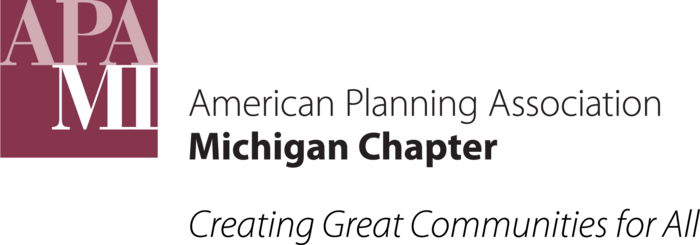What is a Master Plan?
A Master Plan is a document and policy guide designed to help communities create a vision of what they want to look like in the future. Master Plans help guide communities in their decisions on land use development and preservation. Master Plans are written and adopted by a local Planning Commission and might also be adopted by a local legislative body, although Master Plans are not laws on their own. Many Master Plans are written as one document but they can be and often are more effective when written as multiple documents. For example, a community may want to create a Waterfront Plan for part of their community and adopt it as part of the overall Master Plan.
In order to write a Master Plan, a community must first create a Planning Commission who will be the writers and primary caretakers of the Plan. The planning process begins with a study of existing conditions, including demographics, housing, transportation, economic trends, or other analyses. The public is then engaged to give input how they want the community to grow over the next 20 or more years. The Planning Commission then creates and maintains the Future Land Use Map from this Planning process, which will guide the Commission in its decisions on zoning and development going forward.
In order to implement the Master Plan upon its creation, the Planning Commission will develop and administer the Zoning Ordinance. The Zoning Ordinance is the specific law related to land use in a community. While the Future Land Use Map is written in broad terms and is not a law that can be enforced, the Zoning Map and Ordinance describe the specific types of uses allowed on any given property and are adopted as law by the legislative body. A community also implements a Master Plan by developing a capital improvements program, which lists key projects to prioritize in the budget in the next 5-6 years. The Master Plan also guides the Planning Commission as it makes decisions on development proposals brought before them. The Planning Commission is tasked with ensuring each development fits with the goals of the Master Plan so the community grows according to the expectations of its citizens.
USEFUL LINKS:
What materials should I consult when developing a master plan
Questions to Guide the Master Plan Process
Including the Master Plan in the Budget Process
Doing a Master Plan for the first time?
MICHIGAN PLANNING ENABLING ACT
Act 33 of 2008 AN ACT to codify the laws regarding and to provide for county, township, city, and village planning; to provide for the creation, organization, powers, and duties of local planning commissions; to provide for the powers and duties of certain state and local governmental officers and agencies; to provide for the regulation and subdivision of land; and to repeal acts and parts of acts.
MICHIGAN ZONING ENABLING ACT
Act 110 of 2006 AN ACT to codify the laws regarding local units of government regulating the development and use of land; to provide for the adoption of zoning ordinances; to provide for the establishment in counties, townships, cities, and villages of zoning districts; to prescribe the powers and duties of certain officials; to provide for the assessment and collection of fees; to authorize the issuance of bonds and notes; to prescribe penalties and provide remedies; and to repeal acts and parts of acts.

